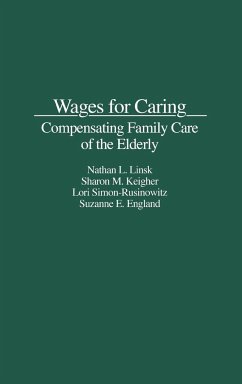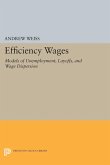Wages for Caring examines policies and programs of compensation for family caregivers of the disabled elderly from a broad analytical perspective, weighing current policies of home care services against principles of access, equity, quality, and funding of long-term care. Linsk, Keigher, Simon-Rusinowitz, and England challenge widely held assumptions that currently hold the family responsible for care, and accept the government's role in deterring or delaying institutionalization. The authors focus on programs and policies that already exist which could be adjusted to include families and to promote support of family caregiving. In assessing the potential of broad implementation of wages for caring, they contend that if implemented appropriately, family compensation may offer benefits not available through any other kind of service system. First, the authors review incentives to family care and services to families providing home care, and include an overview of attendance allowance and caregiver compensation programs in other developed countries. Next, they present several original studies in an integrated format to allow for the analysis of pros and cons of several compensated family care programs. Third, they examine provisions of Medicaid programs at the state level, as well as provisions of the aging network and their potential to complement family care. The focus is largely on poor clients and families, for whom the burden of care has the most relevant costs in terms of potential government liability. Finally, the authors develop consumer centered criteria to evaluate policy and program provisions, with special attention to the special needs of low-income elderly and their families. Wages for Caring will prove particularly useful to public policymakers, social workers, gerontologists, and researchers.
Hinweis: Dieser Artikel kann nur an eine deutsche Lieferadresse ausgeliefert werden.
Hinweis: Dieser Artikel kann nur an eine deutsche Lieferadresse ausgeliefert werden.








